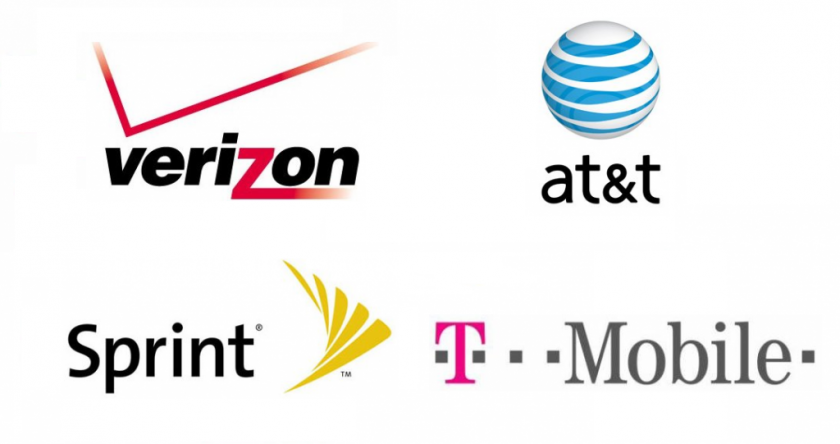
- Tutela, an independent mobile quality measurement company based in Canada, just published a new U.S. wireless coverage report.
- In the report, Tutela's results paint a bleak picture for MVNO service: it's mostly not as good as service with the primary carrier.
- On average, download speeds on MVNO networks are 23 percent worse than with the host operator.
If you're using an MVNO for your wireless service in the United States, you are likely saving quite a bit of money as compared to what you would pay if you were under direct contract with Verizon, AT&T, T-Mobile, or Sprint. That's great!
However, a new report from Canadian mobile quality metrics company Tutela suggests you are getting what you pay for. In other words, you might be saving money, but your service is likely considerably worse than it would be with the host operator.
A little background: An MVNO (which stands for Mobile Virtual Network Operator) is a company which leases spectrum in bulk from one of the Big Four carriers and then resells it back to you. Some popular MVNOs are Cricket (AT&T), Xfinity Mobile (Verizon), MetroPCS (T-Mobile), and Virgin Mobile (Sprint).
Tutela's new report breaks down what it calls the consistent quality metric for select MVNOs — and for many, it doesn't paint a pretty picture.
The Consistent Quality Metric
Tutela knows there are plenty of other metrics companies around which test mobile networks in the U.S., such as RootMetrics and Open Signal. However, Tutela is of the opinion that monitoring network speeds is not the whole picture, and what users really care about is how consistent their mobile service is, not how fast it can possibly be.
Thus, it developed the consistent quality metric, which "uses the network and device data [Tutela collects] from millions of mobile device owners every day to analyze which carriers reliably provide fast enough speeds to perform routine mobile tasks." Those routine mobile tasks are things like watching a YouTube video, using Google Maps, buying things on Amazon, etc.
For this new report, Tutela examined urban areas of the U.S. and looked for network usage which met the following criteria:
- Download speeds > 4Mbps
- Upload speeds > 2Mbps
- Latency < 50ms
- Jitter < 30ms
- Packet loss < 5%
For the sake of simplicity, imagine that every time a network met those criteria for a user it received a point, and any time it didn't, it lost a point. In the end, you get a basic idea of which carriers are the best at delivering consistent quality.
As one would expect, Tutela's report concludes Verizon is the best at delivering consistent quality across the U.S., with T-Mobile a close second, AT&T a distant third, and Sprint lagging way behind in fourth. That's all pretty expected.
However, Tutela then compared the results of the Big Four carriers to some of their MVNOs, and that's where things get interesting.
Some MVNOs are lagging way behind
Although most savvy consumers expect cheaper service with an MVNO to be a little worse than expensive service with a host carrier, Tutela's results suggest some MVNOs are delivering low enough quality to make the money saved questionable.
According to Tutela, the average download speeds on MVNO networks are 23 percent worse than with the host operator.
For example, check out how Xfinity Mobile compares with its host operator, Verizon:
Service with Xfinity Mobile is about half as good as service with Verizon. Under Tutela's consistent quality metrics described in the previous section, that means Xfinity Mobile customers are only receiving consistent quality about half the time, while Verizon customers (on the same network!) are getting it over 80 percent of the time.
Things are similarly poor with Cricket, the most popular MVNO under AT&T. Its consistent quality score is less than Xfinity's at only a little over 40 percent, with AT&T's score only at a little over 65 percent:
Ironically, two other AT&T MVNOs — Consumer Cellular and H2O — are getting better consistent quality scores than service on AT&T!
The discrepancies between MVNO services under Sprint are less extreme but certainly notable. Both Boost Mobile and Virgin Mobile customers are getting about 10 percent worse service when it comes to consistent quality as compared to Sprint customers (but, notably, Sprint customers also have it pretty bad):
Finally, the only carrier which seems to allow its MVNOs to both deliver consistent quality and deliver it at a rate relative to the main brand is T-Mobile. Four of its MVNOs have consistent quality scores which are all close to each other as well as all being very close (but still lower) to what main T-Mobile customers receive:
What should you do?
This report suggests that if you live in an urban area and are on Xfinity, Cricket, Boost, or Virgin, you might want to think about switching. Yes, you might be saving money as compared to service with one of the Big Four carriers, but the trade-off is your service quality is significantly lower. Meanwhile, customers on Metro or another T-Mobile MVNO are getting better quality at about the same price you are likely paying.
If consistent quality service is important to you, this data also suggests you should get out of MVNOs entirely and get on either Verizon or T-Mobile. Since T-Mobile is generally cheaper than Verizon — with a bigger selection of compatible phones and more customer perks — the data here points to T-Mobile being the best bang for your buck.
What do you think? Does this data make you want to switch, or are you happy where you are? Sound off in the comments below.
NEXT: Here are the best T-Mobile deals and offers right now
from Android Authority https://ift.tt/2JowRen
via IFTTT




Aucun commentaire:
Enregistrer un commentaire